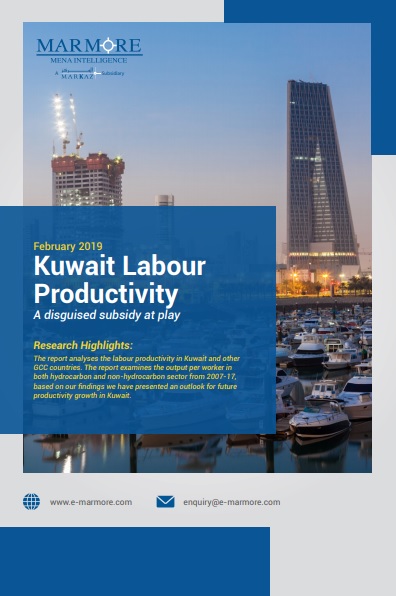Executive Summary
Public procurement refers to the purchase of goods and services by government and state-owned enterprises. Kuwait spends a considerable amount, nearly 13.4% of its GDP, for procurement of various goods and services. Public procurement spend has been instrumental as a policy lever in realizing larger government objectives such as generating employment opportunities, improving domestic production, enhancing private sector participation and scaling up SMEs. In Kuwait, SMEs constitute large proportion of enterprises but only a small portion of them acts as suppliers to government projects. Public procurement as a policy tool to promote the development of Small & Medium scale Enterprises (SMEs) is well recognized in the developed markets. SME participation in public procurement could be increased through a range of measures such as splitting contracts into smaller parts (lots), SME-friendly selection criteria, relaxation of financial requirements, improved access to finance, and mandating procurement targets. Measures that are currently in progress to improve SME participation are Kuwait Industries Union's platform to showcase local companies' products and Kuwait Economic Society's plans to coordinate with CAPT on introduction of platform for direct purchases (values less than KD 75,000).
Though Central Agency for Public Tenders (CAPT) has an eProcurement facility, the entire process is not digitalized. In its present form it could serve as an 'information-oriented system' rather than a 'transaction-oriented system'. Leveraging technological and digital advancements for process improvements is a low hanging fruit for Kuwait and it could result in enhanced transparency and improved accountability. Implementation of end-to-end e-Procurement platform could enable Kuwait, on an average, to save 29.3% of the time it takes currently to award contracts. Further, it could boost productivity, create meaningful jobs and enhance economic activity. Transformation of the public procurement system, though a long-drawn-out process, has far-reaching benefits. Increasing the efficiency requires comprehensive action by various stakeholders at all levels of procurement process. Ownership of process and assuming accountability to deliver change could lead to positive results.





